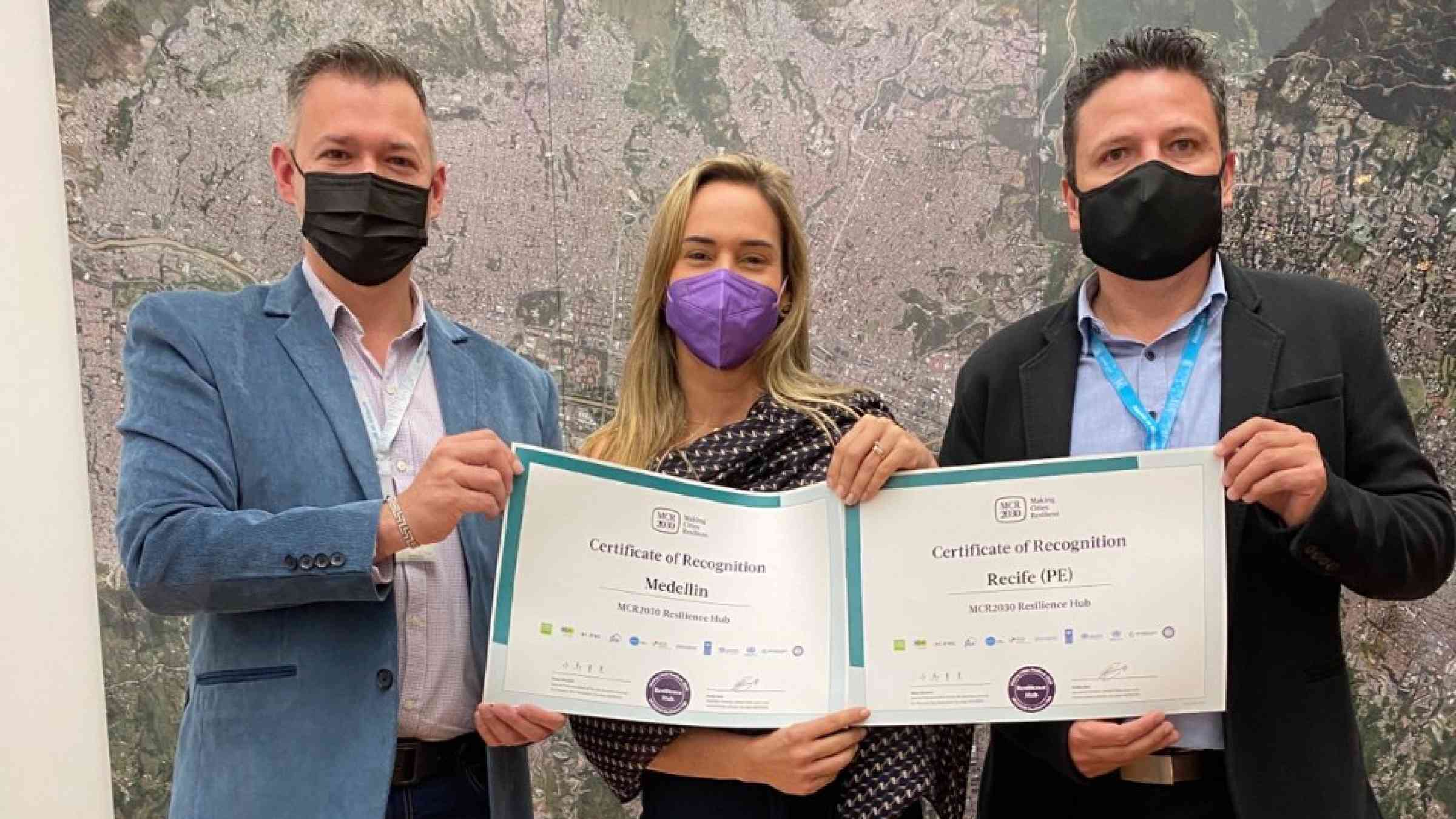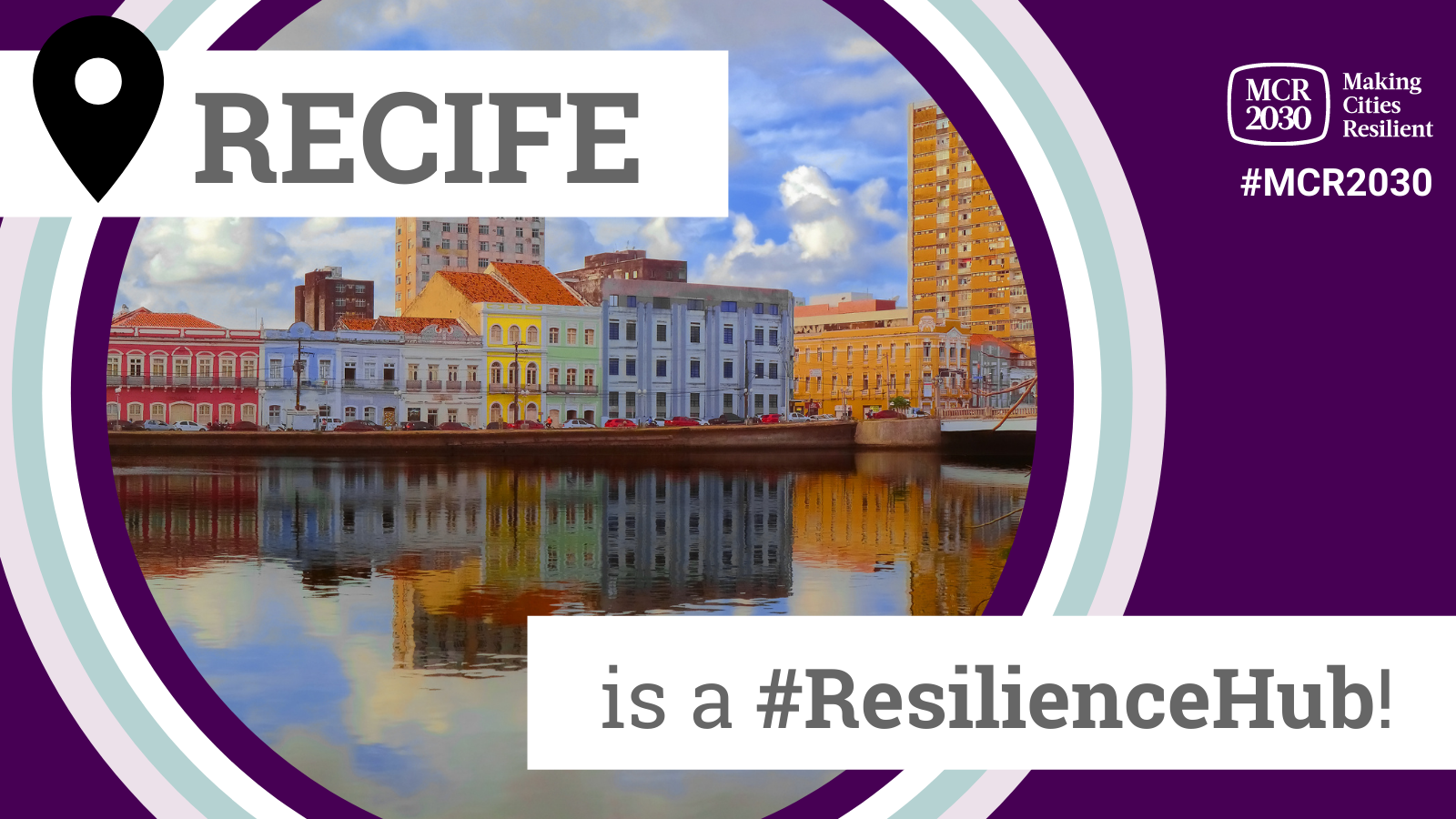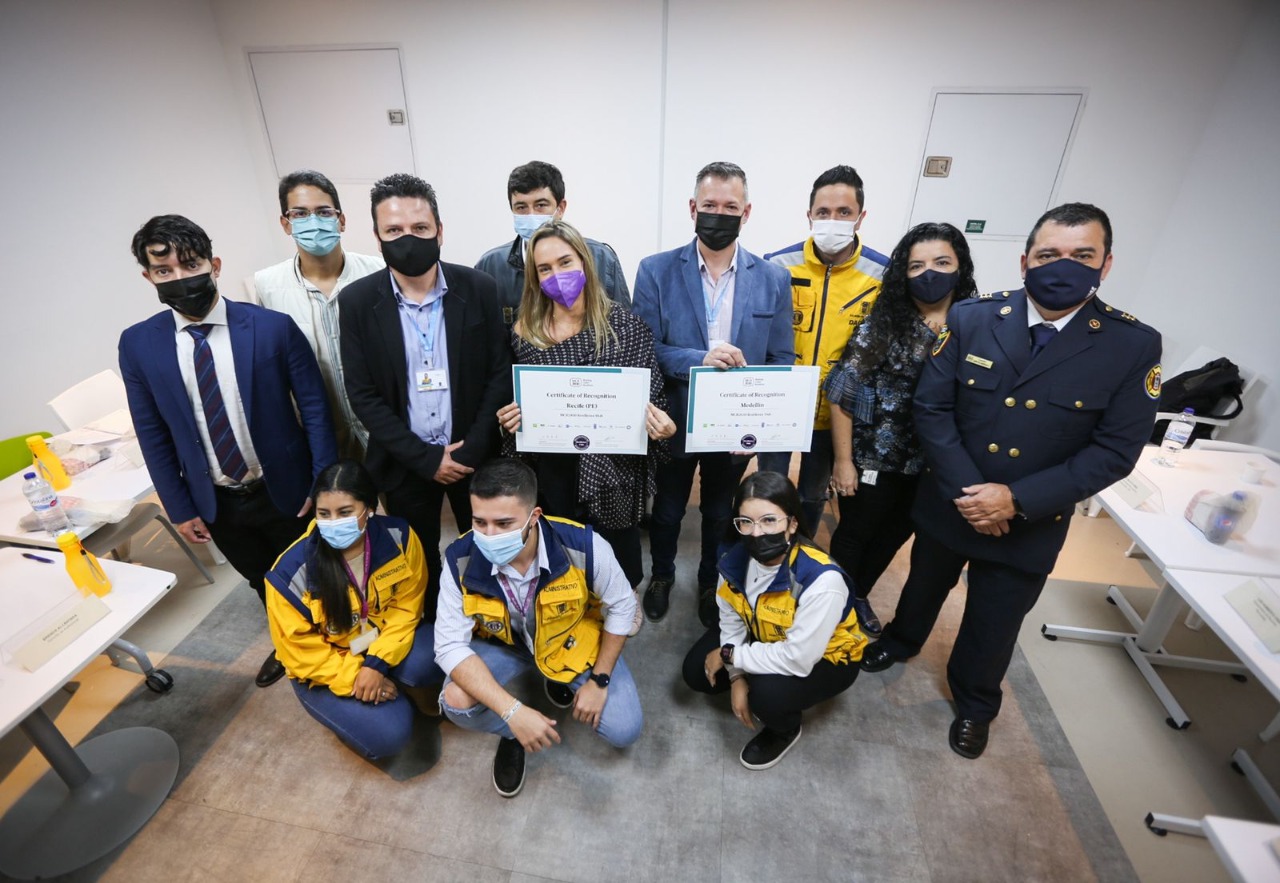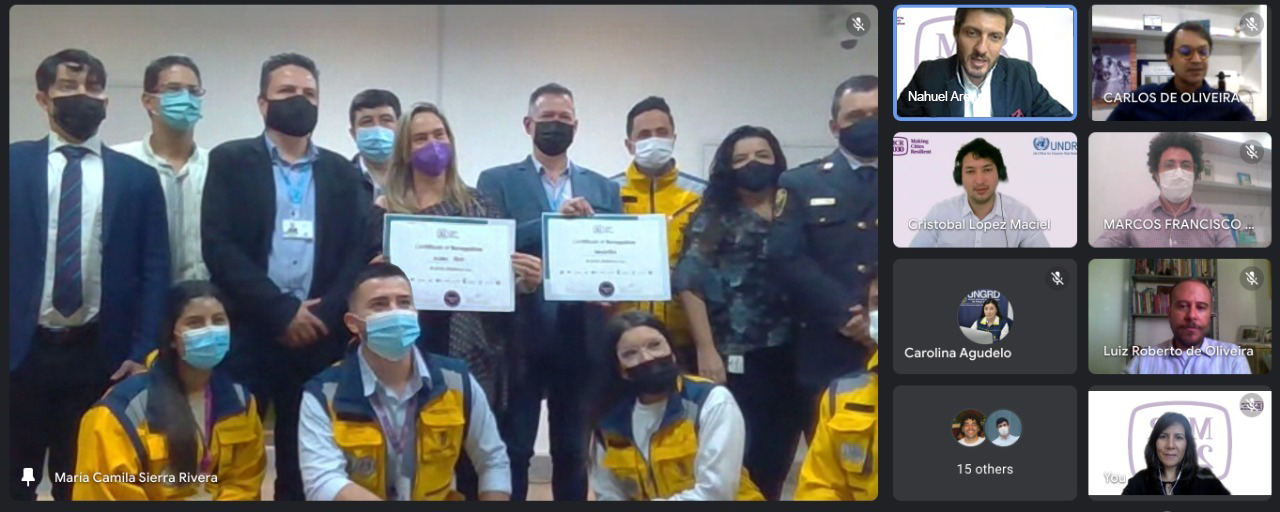Recife is now recognized as a Resilience Hub & takes part in the first knowledge exchange between Resilience Hubs in Medellín

After going through a rigorous evaluation assessment, Recife, Brazil, has been recognized as the fourth Making Cities Resilient 2030 (MCR2030) Resilience Hub in the Americas and the Caribbean and the tenth at a global level. The announcement was made on January 10th, 2022.
Resilience Hubs are recognized for their commitment to building local resilience as well as their track record in policymaking and advocacy in addressing disaster and climate risk. Resilience Hubs’ demonstrated leadership is what makes them not only capable of addressing Disaster Risk Reduction through strategies and plans in accordance with the Sendai Framework for Disaster Risk Reduction 2015-2030, but also contributing to achieving the New Urban Agenda, the Paris Climate Agreement, and the Sustainable Development Goals (SDGs).
Recife has displayed a series of good practices and projects in areas of climate mitigation and adaptation, including issuing a municipal decree for the Recognition of Global Climate Emergency in 2019. The city has a solid Local Climate Action Plan (PLAC, in the acronym in Portuguese), which includes an axis dedicated to Disaster Resilience. The city also has projects to promote capacity-building to its local communities, and environmental conservation and restoration projects all connected to climate adaptation.
 As a Resilience Hub, Recife has developed a work plan that includes hosting large-scale advocacy events with a national scope. The city is also committed to mentoring other MCR2030 cities while developing pedagogical and communication materials on sustainable urban development and disaster and climate resilience.
As a Resilience Hub, Recife has developed a work plan that includes hosting large-scale advocacy events with a national scope. The city is also committed to mentoring other MCR2030 cities while developing pedagogical and communication materials on sustainable urban development and disaster and climate resilience.
The same topics will also be objects of training and capacity building addressing municipal agents across Brazilian cities.
Stressing the importance of integrating climate change action into urban planning, Isabella de Roldão, Deputy Mayor of Recife states: “The climate emergency is already a reality in our daily lives and increasingly threatens our survival on the planet. The effects of climate change have negative impacts on everyone’s routine and its consequences – such as heavy rains that cause floods and landslides, and an increase in vector-borne diseases – are managed at the local level”.
How do cities operate after being recognized as Resilience Hubs?
As leaders, they exchange and diffuse their expertise to other cities, learn about best practices from others, and help to build resilience beyond borders. Under the MCR2030 framework, the cities of Medellin, Colombia and Recife, Brazil, held the first exchange between Resilience Hubs in the Americas and Caribbean region. The event took place on February 10, 2022, in hybrid mode. The Administrative Department of Disaster Risk Management of Medellin (DAGRD, in the acronym in Spanish) hosted this event to celebrate the recognition of the city of Recife as a Resilience Hub. This event also became a space between representatives of both cities, where the importance of peer-to-peer collaboration to achieve a safer, resilient, sustainable, and inclusive region was reiterated.
Representing the city of Recife, Deputy Mayor Isabella de Roldão emphasized the importance of promoting sustainable development in the cities of the region. "We have to join efforts and energies in this sustainable path. This certification that comes to us today does nothing more than confirm that Recife has moved forward responsibly, understanding the importance of developing economically and socially, but, more than ever, from the perspective of sustainability". For his part, the Secretary of Environment and Sustainability of Recife, Carlos Ribeiro, expressed the importance and commitment of the city of Recife to support other territories. "Receiving this certification is an honor and confirms the result of the work we have been building over the years in Recife, investing in actions to address climate change and reduce greenhouse gases. The administration has made several commitments, strengthening environmental agendas, and building an active and promising climate agenda, respecting all the actors involved in this process. Based on this history, the capital of Pernambuco should be an example of resilience and support other localities, sharing experiences and undertaking successful projects and actions, because to build a resilient future we need the participation of all".
 Medellín highlighted the importance of sustainable development by unveiling the structure of its Development Plan. The "Medellin's Development Plan is a commitment to the future and the Environment, especially to prepare for the effects of Climate Change", said Jhon Walter Perez Betancur, Deputy Director of Knowledge and Disaster Risk Reduction, in the company of Carlos Alberto Muñoz Betancur, Deputy Director of Disasters Management.
Medellín highlighted the importance of sustainable development by unveiling the structure of its Development Plan. The "Medellin's Development Plan is a commitment to the future and the Environment, especially to prepare for the effects of Climate Change", said Jhon Walter Perez Betancur, Deputy Director of Knowledge and Disaster Risk Reduction, in the company of Carlos Alberto Muñoz Betancur, Deputy Director of Disasters Management.
The event was attended by the National Unit for Disaster Risk Management of Colombia (UNGRD), UNDRR, and the organization of Local Governments for Sustainability (ICLEI) on behalf of the Regional Coordination Committee (RCC) of MCR2030. These organizations as well as all RCC members rejoice in the celebration of the Resilience Hubs and endorse their commitment to support local governments in Colombia, Brazil, and the Americas and Caribbean region as a whole. As stated by Nahuel Arenas, Deputy Head of UNDRR, Regional Office for the Americas and the Caribbean:
"Being a Resilience Hub is not only a recognition of the great work carried out by cities. It is also a commitment to become a mentor and to connect and support other cities that are also advancing in their Resilience Roadmap. This year, MCR2030 focuses on one particular goal, to leave no local government behind. And it is precisely the Resilience Hubs, key actors to the implementation of actions to supporting other governments in the region."

From MCR2030, we are proud to see Resilience Hubs paving the way to building resilience within and outside borders, sharing and promoting good practices, and doing so as part of a network that keeps growing.
Cities interested in becoming Resilience Hubs or taking the first steps to build their resilience along the MCR2030 roadmap can sign up here.

